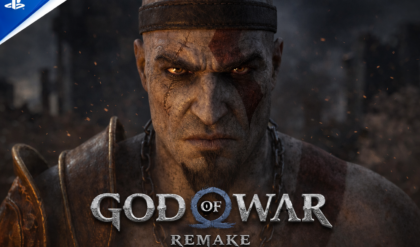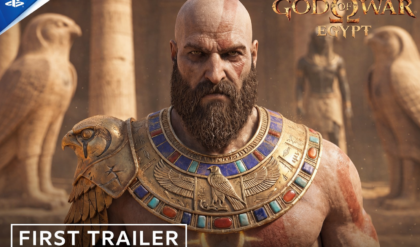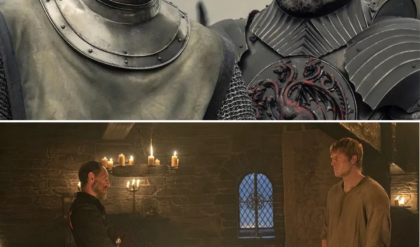An Oblivion Remastered player decides to ignore the main quest to explore the game at their own pace, only to eventually regret that decision.

The Elder Scrolls IV: Oblivion Remastered, released on April 22, 2025, has rekindled the magic of Bethesda’s 2006 RPG masterpiece for a new generation, boasting enhanced visuals via Unreal Engine 5, modernized controls, and all DLC content, including Knights of the Nine and Shivering Isles. With over four million players diving into Cyrodiil’s sprawling open world, the game’s freedom to explore at one’s own pace remains a hallmark. Yet, one player’s decision to sidestep the main quest in favor of leisurely exploration led to a harsh lesson in the game’s notorious level-scaling system, turning a promising adventure into a regret-filled ordeal at the gates of Kvatch.
The player, a Reddit user known as MaximumCashew0, chose to embrace Oblivion Remastered’s open-world allure, wandering Cyrodiil’s lush forests, ancient ruins, and bustling cities. For hours, they leveled up to 15, tackling side quests, joining guilds, and battling bandits, all while ignoring the main questline that begins with delivering the Amulet of Kings to Jauffre at Weynon Priory. This approach aligns with a common sentiment among Elder Scrolls fans: the joy of Bethesda’s RPGs lies in getting lost in their worlds, not rushing the central narrative. Online discussions, including posts on X, often encourage newcomers to explore freely, as the main quest can feel less urgent compared to the rich tapestry of side content, from the Dark Brotherhood’s assassinations to the Arena’s gladiatorial battles.
Oblivion’s main quest revolves around aiding the Blades to crown Martin Septim as Emperor and close the Oblivion Gates threatening Tamriel. The fourth quest, “Breaking the Siege of Kvatch,” tasks players with entering an Oblivion Gate to rescue Martin from a Daedric invasion. It’s a pivotal moment, introducing players to the fiery, otherworldly planes of Oblivion and setting the stage for the broader conflict. For MaximumCashew0, however, reaching Kvatch after extensive exploration proved disastrous. Upon entering the quest, they faced a horde of overpowered enemies—half a dozen Atronachs, multiple Daedroths, and other Daedric monstrosities—that overwhelmed them within seconds, as captured in gameplay footage shared online. The player described the encounter as an “insane difficulty jump,” lamenting their decision to delay the main quest.
The root of this regret lies in Oblivion’s controversial level-scaling system, a design choice retained in the remaster despite modernization efforts. Unlike Skyrim, where enemies have fixed or capped levels in many areas, Oblivion scales enemy strength directly to the player’s level, regardless of quest progression. At level 15, MaximumCashew0 faced high-tier Daedra like Daedroths—crocodile-headed brutes with devastating melee attacks—and Atronachs, elemental beings with potent magic. These foes replaced the weaker Scamps typically encountered at lower levels, turning Kvatch into a slaughterhouse. The guards and allies assisting in the quest, whose stats also scale but often lag in effectiveness, were quickly dispatched, leaving the player to face the onslaught alone.
This scaling issue is a well-documented quirk of Oblivion. Community guides, such as those on the Unofficial Elder Scrolls Pages, warn that delaying main quests like Kvatch can escalate their difficulty dramatically. At levels 5–10, the Kvatch Oblivion Gate features manageable enemies, allowing players to leverage early-game gear and skills. Beyond level 10, however, the game spawns tougher Daedra, assuming the player has acquired better equipment and abilities. For MaximumCashew0, who likely focused on non-combat skills or spread their attributes thinly during exploration, the encounter was punishing. Online forums echo this sentiment, with veterans advising newcomers to tackle Kvatch before level 10 to avoid such spikes, a recommendation amplified for the remaster due to tweaks in leveling speed.
Oblivion Remastered exacerbates this issue through its updated leveling system. To align with modern RPGs, developers at Virtuous Studios made leveling faster than in the original, allowing players to gain levels quickly through activities like jumping (Acrobatics), casting spells (Restoration), or picking locks (Security). While this streamlines progression, it leaves the enemy scaling unchanged, meaning players can inadvertently outlevel main quests without adequate combat preparation. MaximumCashew0’s level 15, achieved through exploration, placed them in a difficulty bracket the quest wasn’t designed to handle at that stage, highlighting a design flaw that even the original’s lead designer called a “mistake” in retrospect.
The player’s regret also stems from missed narrative momentum. By delaying the main quest, MaximumCashew0 bypassed early story beats that establish the urgency of the Oblivion Crisis. Delivering the Amulet of Kings unlocks a free horse, steel armor, and access to the Blades’ Cloud Ruler Temple, providing practical benefits for exploration. It also triggers random Oblivion Gates across Cyrodiil, which yield valuable Sigil Stones for enchanting gear. Had the player progressed to Kvatch earlier, they could have closed the gate, earned Fame points, and used fast travel to revisit gates for loot, balancing exploration with story progression. Instead, their late arrival at Kvatch disrupted the intended pacing, making the quest feel like a punishing detour rather than a heroic milestone.
Community reactions, including posts on X, reveal mixed sentiments about Oblivion Remastered’s main quest. Some players, like one who called the story “boring” despite the remaster’s visual glow-up, prefer side content for its variety and charm. Others argue the main quest, while straightforward, shines through characters like Martin Septim and its climactic battles, making it worth prioritizing. MaximumCashew0’s experience underscores a broader lesson: Oblivion’s freedom is a double-edged sword. The game rewards exploration but punishes unpreparedness, especially in a remaster that retains the original’s quirks while accelerating progression.
For PC players, mods offer a solution. The community has already released patches for Oblivion Remastered, including mods that cap enemy levels or rebalance quests to mitigate scaling issues. One mod introduces fixed enemy tiers, ensuring Kvatch remains challenging but fair regardless of level. Another adjusts loot scaling, preventing low-level rewards from becoming obsolete. Console players, however, are stuck with the default system, making early main quest progression critical. Guides recommend completing “Deliver the Amulet” and “Find the Heir” by level 5 to secure early rewards and keep Kvatch manageable, advice MaximumCashew0 might wish they’d heeded.
The player’s ordeal also reflects Oblivion’s unique design philosophy. Unlike modern RPGs with guided narratives, Oblivion trusts players to forge their own path, even if it leads to failure. This freedom, celebrated by fans, can overwhelm newcomers unaccustomed to its consequences. Kvatch, as the first major Oblivion Gate, serves as a gatekeeper, testing whether players have balanced exploration with combat readiness. For MaximumCashew0, the regret wasn’t just about difficulty but the realization that their choices reshaped the game’s flow, turning a heroic quest into a humbling defeat.
Looking forward, Oblivion Remastered’s community is rallying to support players facing similar pitfalls. Forums buzz with tips: focus on combat skills early, save before grabbing Sigil Stones, and join guilds like the Mages Guild for spell-crafting to counter tough foes. Some suggest using the new Clairvoyance spell, added in the remaster, to guide players to objectives, reducing aimless wandering. Others advocate for the Deluxe Edition’s new quests, “Burning Trail” and “A Wound in Time,” which offer Akatosh and Mehrunes Dagon-themed gear to bolster early-game power.
MaximumCashew0’s tale is a cautionary one, but it doesn’t diminish Oblivion Remastered’s brilliance. The game’s 18 main quests, spanning roughly 20 hours, are just a sliver of its 200+ hours of content. Side quests, from the Thieves Guild’s heists to the Shivering Isles’ madcap adventures, offer endless replayability. Yet, the main quest anchors the experience, providing structure and stakes. By ignoring it, the player missed early rewards and narrative context, only to face a scaled-up gauntlet that exposed the game’s unforgiving side.
In the end, Oblivion Remastered remains a testament to player agency, for better or worse. MaximumCashew0’s regret highlights the need to balance exploration with progression, a lesson as old as Cyrodiil itself. As players continue to flood the remaster, sharing stories of triumph and defeat, the game’s legacy endures—not just as a visual overhaul but as a world where every choice, even a regrettable one, writes a unique saga.





